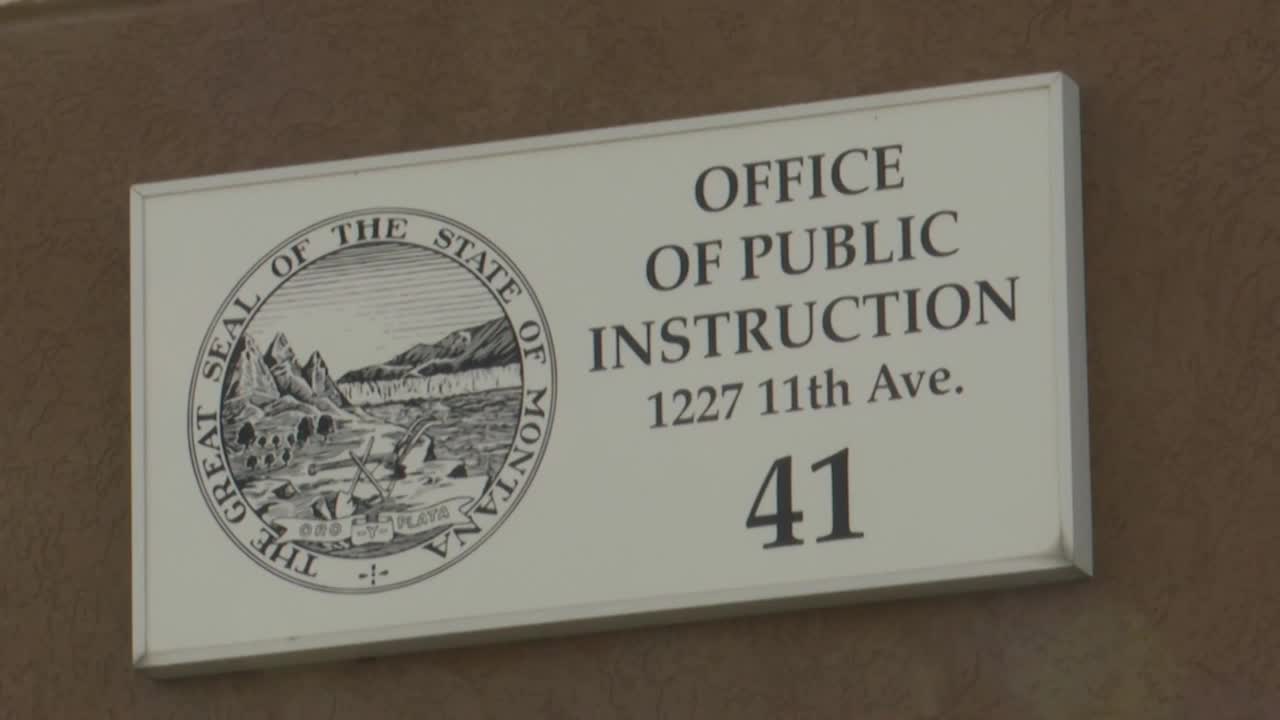BILLINGS — Montana schools superintendents are highlighting their main concerns about the leadership of Montana State Superintendent of Public Instruction Elsie Arntzen.
In an interview with MTN News Wednesday, Billings School District 2 Superintendent Greg Upham said he's ready to have local staff help the Montana Office of Public Instruction (OPI) be more responsive to administrative requests for local schools,
"Us superintendents have been talking and discussing ways in which we can maybe help situations. If that's maybe using some of our people to support or assist, I think we're open to that. We just see a deficiency in the areas that have been listed and we're looking at solutions ourselves of what to do. I think they are challenging all over the place," Upham told MTN News on Wednesday.

All eight superintendents representing Class AA schools signed a letter sent to the Office of Public Instruction this week, expressing, "no confidence" in its leader Arntzen.
Their complaints were an understaffing at OPI departments, undermining local school authority, a backlog of unlicensed teachers waiting for OPI approval, a lack of updated content standards, schools losing grants due to OPI missing deadlines and a general lack of support school districts have been receiving during Arntzen’s tenure.
Click here to read the full letter.

Upham said there wasn't necessarily any certain straw that broke the camel's back and forced the superintendents to send the letter. Rather, the fact that OPI isn't as responsive as it has been in the past, Upham said.
“This is about the operation of the Office of Public Instruction and the deficiencies that we are dealing with in all of our areas. And they are sufficient enough for us to take action. Our job is to educate our students and anything that stands in the way of that, we need to fix. We have identified it and we need to move forward and find solutions to get this work done," Upham said.
Great Falls Public Schools Superintendent Tom Moore said that Montana schools and OPI are supposed to work together, and it hasn't felt that way lately.
"The superintendent of public instruction is an elected official. The only person that she really answers to are the people or public. And we’re stakeholders in this work together and I think we tried to outline that in this letter. That we’re supposed to be working together, not against each other and it feels that way a little bit,” Moore said.

MTN News has reached out to Arntzen's office, but no one has responded as of Thursday evening. Arntzen did release a statement to the superintendents' letter earlier this week. It reads in part, "Your concerns are noted, and I look forward to continuing to make OPI the best office possible while providing necessary support, outreach, and resources to school districts throughout Montana, in support of our student learning."
Click here to read Arntzen's full statement.
The AA superintendents' letter is not the first time this year that school leaders have expressed a lack of confidence in Arntzen's leadership.
In November, Missoula County Superintendent of Schools Erin Lipkind sent a letter as public comment to the Board of Education before its November meeting. It was signed by three other rural superintendents: Cathy Maloney of Butte-Silver Bow County, Susan Beley of Wheatland County and Susan Metcalf of Sweet Grass County.
Citing a 90% turnover rate at the Office of Public Instruction, the comment reads in part, “It has been a real challenge for our schools and administrators to deal with an understaffed, fragmented state agency - no replies to phone calls, no responses to emails.”
Click here to read the full statement from the rural superintendents.








